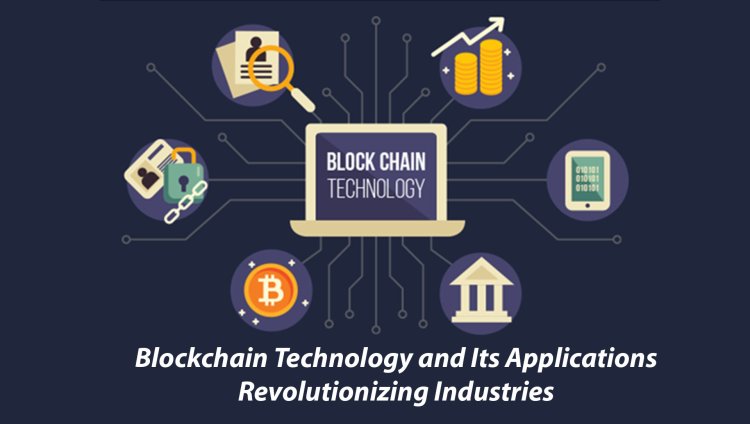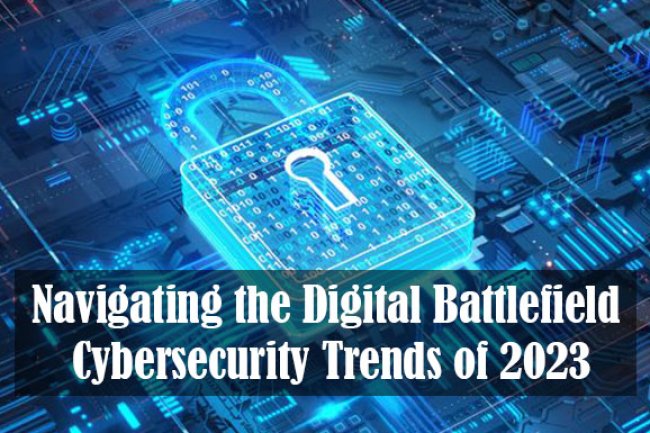Blockchain Technology and Its Applications: Revolutionizing Industries

In the digital age, technological advancements continue to reshape the world we live in. One such innovation that has been garnering widespread attention is blockchain technology. Originally conceived as the underlying architecture for cryptocurrencies like Bitcoin, blockchain has evolved into a transformative force with the potential to revolutionize various industries beyond just finance. In this blog, we'll delve into the fundamentals of blockchain technology and explore its diverse applications across different sectors.
Understanding Blockchain Technology
At its core, a blockchain is a decentralized and distributed digital ledger that records transactions across multiple computers in a secure and transparent manner. Unlike traditional centralized systems, where a single authority controls and verifies transactions, blockchain relies on a network of nodes to validate and record each transaction. These transactions are grouped into "blocks" and linked together in chronological order, forming a continuous chain of information.
The key features that make blockchain technology stand out are:
Decentralization: No single entity has complete control over the blockchain, ensuring a democratic and tamper-resistant system.
Transparency: Transactions are visible to all participants in real-time, promoting trust and accountability.
Security: Each transaction is encrypted and linked to the previous one, making it extremely difficult to alter historical data without consensus from the network.
Applications of Blockchain Technology
Cryptocurrencies and Digital Assets: Cryptocurrencies, such as Bitcoin and Ethereum, are the most well-known applications of blockchain technology. They enable secure and transparent peer-to-peer transactions without the need for intermediaries like banks.
Supply Chain Management: Blockchain can revolutionize supply chain transparency by tracking the movement of goods from origin to destination. This can help in verifying the authenticity of products and preventing counterfeit items from entering the market.
Healthcare: Medical records stored on a blockchain can enhance data security and interoperability among different healthcare providers while giving patients greater control over their information.
Voting Systems: Blockchain-based voting systems can enhance the security and integrity of elections by ensuring transparent and tamper-proof vote counting.
Smart Contracts: These are self-executing contracts with terms of the agreement directly written into code. They automatically execute and enforce terms when predetermined conditions are met.
Real Estate: Blockchain can streamline property transactions by reducing paperwork, minimizing fraud, and providing a transparent record of ownership history.
Digital Identity Verification: Blockchain can provide a secure and tamper-proof way to verify and manage digital identities, reducing the risk of identity theft and fraud.
Energy and Utilities: Blockchain technology can facilitate peer-to-peer energy trading, allowing individuals to buy and sell excess energy directly, thus transforming the traditional energy market.
Challenges and Future Outlook
While the potential of blockchain technology is immense, it is not without its challenges. Scalability, energy consumption, and regulatory concerns are some of the hurdles that need to be addressed for widespread adoption. However, ongoing research and development are focused on overcoming these obstacles.
In conclusion, blockchain technology is a groundbreaking innovation with the power to disrupt and transform a wide range of industries. Its decentralized, transparent, and secure nature opens up a world of possibilities for creating more efficient, trustworthy, and accountable systems. As the technology continues to evolve, we can expect to see even more innovative applications emerge, further solidifying blockchain's role in shaping the future. Whether it's revolutionizing supply chains, improving healthcare, or redefining finance, blockchain is poised to leave an indelible mark on the modern world.
What's Your Reaction?















